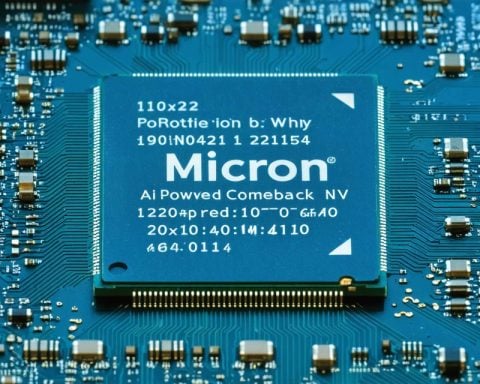T-Mobile’s rise as a dominant force in the wireless sector over the last decade underscores its robust 5G network foundation. Bolstered by its merger with Sprint, T-Mobile has effectively gained a competitive edge, consistently outpacing AT&T and Verizon in postpaid phone net additions.
In recent financial reports, T-Mobile showcased impressive results with $80 billion in revenue and $30.7 billion in EBITDA over the past year, maintaining a strong 64% gross profit margin. The company saw 5.1% service revenue growth alongside a remarkable 29.0% jump in Free Cash Flow due to reduced capital expenditures.
Not just resting on its wireless achievements, T-Mobile is aggressively expanding into the Fixed Wireless Access (FWA) and fiber markets. By 2027, the company aims to serve over 10 million FWA customers, with plans to reach 10 million fiber homes by 2030. These ambitions underscore T-Mobile’s strategy to diversify its service offerings and reduce reliance on traditional wireless markets.
Strategic acquisitions and partnerships enhance T-Mobile’s potential in the broadband domain, integrating fiber and mobile services. However, the high costs of some acquisitions have raised concerns about their impact on short-term profitability.
Despite competitive pressures, T-Mobile’s strong 5G network, coupled with its strategic expansions, positions it as a major disruptor in underserved areas, including rural and enterprise markets. As converged solutions become increasingly attractive, T-Mobile’s focus on bundled offerings and enhanced customer value could drive substantial long-term growth and customer retention.
T-Mobile’s Strategic Expansion: A Glimpse into the Future of Wireless and Broadband
T-Mobile continues to assert its dominance in the wireless industry, surpassing rivals like AT&T and Verizon, largely driven by its cutting-edge 5G network and strategic initiatives. The merger with Sprint has fortified its market position, as evident from their recent financial triumphs and ambitious growth plans. But what truly sets T-Mobile apart is its forward-thinking approach towards expansion, tapping into new markets and technologies.
T-Mobile’s 5G Network: The Backbone of Its Growth
T-Mobile’s foundation rests on its robust 5G network, credited with ushering in unprecedented performance and connectivity in wireless service. The integration of Sprint’s assets has enhanced T-Mobile’s capabilities, allowing it to consistently lead in postpaid phone net additions. This has positioned T-Mobile as a formidable force in the wireless sector, with long-term growth trajectories suggesting an expanding influence.
Expansion into Fixed Wireless Access and Fiber Markets
In a bold move beyond traditional wireless services, T-Mobile is ambitiously charting its course into Fixed Wireless Access (FWA) and fiber markets. By 2027, the company plans to serve over 10 million FWA customers and extend fiber services to 10 million homes by 2030. This diversification aims to capitalize on emerging trends and reduce reliance on conventional wireless operations.
Strategic Partnerships and Acquisitions
T-Mobile’s aggressive expansion strategy involves strategic partnerships and acquisitions, enhancing its broadband service portfolio. The integration of fiber and mobile services showcases T-Mobile’s commitment to providing comprehensive solutions. However, concerns over the high costs associated with these acquisitions could pose challenges to short-term profitability, urging a strategic balance between growth and financial sustainability.
Addressing Rural and Enterprise Markets
T-Mobile’s expansion into underserved areas, particularly rural and enterprise markets, underscores its role as a disruptor. Offering converged solutions that bundle mobile and broadband services, T-Mobile is well-positioned to drive value in these regions. The focus on bundled offerings not only enhances customer value but also promises substantial long-term growth and improved customer retention rates.
Sustainability and Economic Insights
T-Mobile’s growth is not without consideration for sustainability. The company’s focus on reducing capital expenditures promotes better financial health, contributing to a remarkable 29.0% increase in Free Cash Flow. As sustainability increasingly influences business operations and consumer choices, T-Mobile’s adaptation reflects its commitment to eco-friendly and economically viable strategies.
Predictions and Market Trends
Industry experts predict that T-Mobile’s trajectory in the wireless and broadband sectors will continue to ascend, driven by innovations in 5G and broadband technologies. The demand for enhanced connectivity solutions in both urban and rural settings is expected to foster T-Mobile’s growth prospects. As technology evolves, so does T-Mobile’s potential to redefine industry standards and consumer expectations.
For more information on T-Mobile’s offerings, visit T-Mobile’s official website and explore their products and services.






















